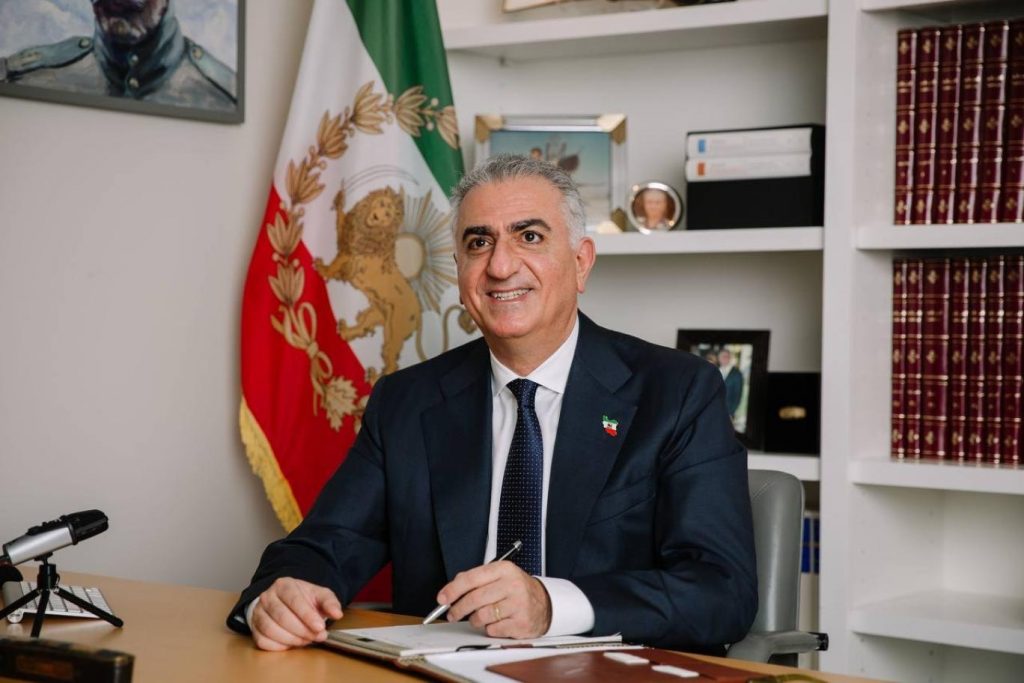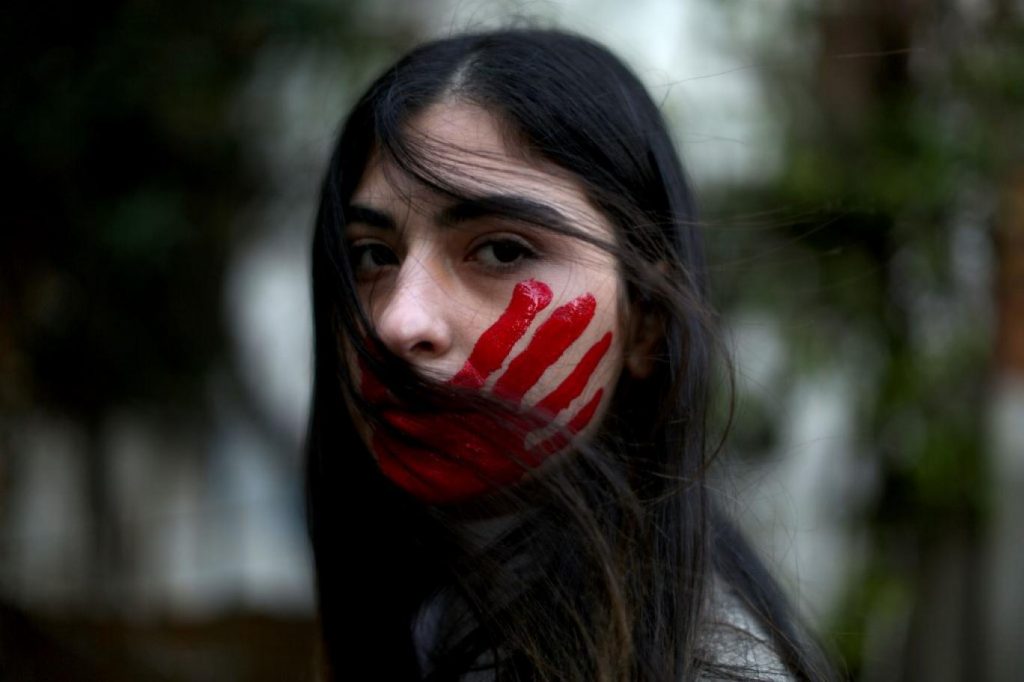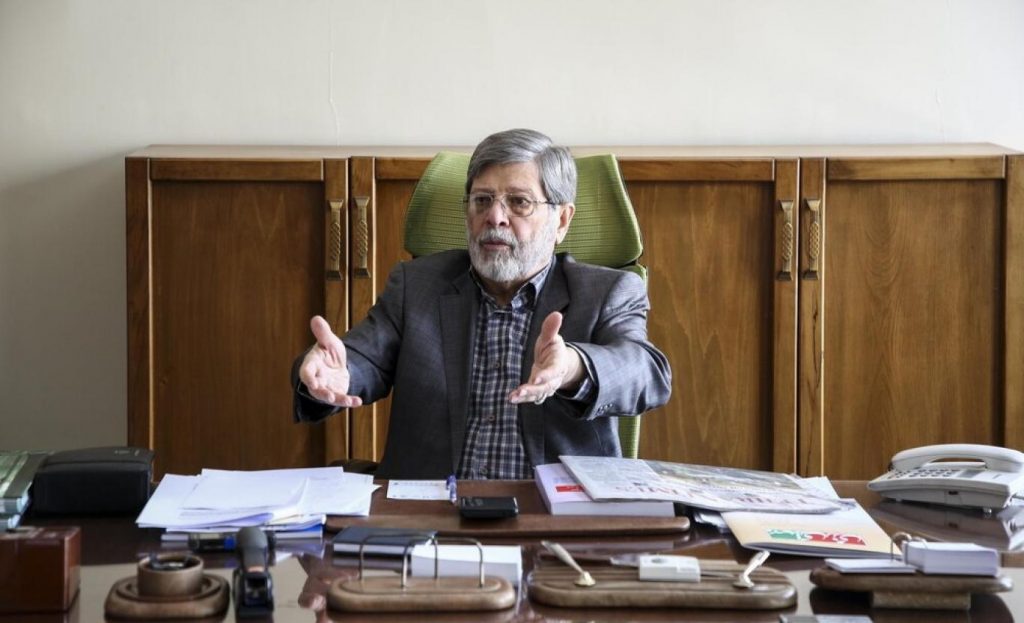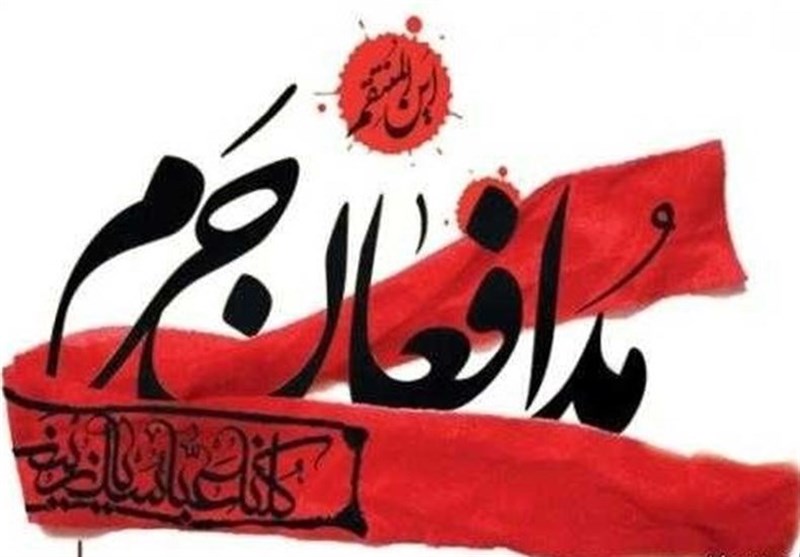
Make No Mistake! International Conditions Do Not Favor Iran!
The editorial of Setareh Sobh argues how the Russian invasion of Ukraine will have repercussions for the nuclear talks and will harm Iran’s interests.
Each night we go to sleep and when wake up in the morning, many incidents and events have happened all over the world which are thought provoking. One example is Putin’s miscalculation in invading Ukraine which has not only destroyed Russia’s hegemony, but has also discredited and disgraced Putin in both Russia and the world.
Putin has the illusion of grandeur and is seeking to revive the empires of the tsars and the Soviet Union. He overestimated his own power while underestimating the power of the Ukrainian people, the Ukrainian president, the West, NATO, media, artists, sportsmen, etc. He did not think that the Russian ruble would lose 40 percent of its value over a week due to the sanctions levied against his country.
Russia is Iran’s ally, but has acted in a way to hinder reaching an agreement over Iran’s nuclear case. This is because Russia benefits from Iran’s absence from global energy markets.
Although the Iranian foreign minister has said that if Iran’s redlines are accepted, he is ready to go to Vienna, the evidence shows that it has become increasingly difficult to revive the nuclear deal.
Iran’s miscalculation regarding the nuclear deal took place when the previous negotiating team announced its readiness to bring the talks to fruition and reach an agreement, but those who were against the deal did not allow it to come to fruition. If an agreement had been reached then, it could have benefited the people and Iran’s economy.
Before the Russian invasion of Ukraine, Russia could have had a positive impact on the nuclear deal, but after the invasion, whatever Russia says, the other countries will act otherwise. As such, the negotiating team must admit that the situation has changed to Iran’s disadvantage. And given Iran’s stance toward the Russian invasion, it is possible that what is happening in Ukraine might help to create a consensus against Iran which will have consequences for people.
The conflict between the West and Russia and China can be a win-win for Iran. Given the precarious position of Russia on the international scene, it is only reasonable to use the conflict between the West and Russia and China to the Iranian people’s advantage, which requires direct talks between Tehran and Washington to reach a win-win compromise.
Platform for Countering Infiltration Must Change!
The editorial of Ebtekar urges that Iranian security forces have made it easy to infiltrate the ultra-conservative “principlists,” by only focusing on Iranian “reformists.”
For years, along with the escalation of tensions between Iran and America and Israel, the issue of infiltration has been raised and countering it has become one of the main responsibilities of the security forces. Iran’s conflict with Israel in the region is a serious matter and naturally Israel will do anything to infiltrate and spy on Iran.
Despite some successes, Iran’s measures have not been effective in this regard. Every now and then, there is news of the arrest or escape of high ranking Iranian officials and those holding sensitive positions. For a while, stealing secret documents and assassinations of senior nuclear scientists by Israelis have made the headlines.
Of course, infiltration in a country like Iran is not surprising, as it is natural for the enemies of the country to spy on and infiltrate it. Iran has similarly used this method against its enemies a lot.
But as to why the paths of infiltration are not blocked, one can point out to the incorrect formation of the platform to counter it. The issue of infiltration has become a matter of dispute between the “reformists” and the ultra-conservative “principlists” within Iran. The security apparatus is focused only on one political faction, and, as always, it is the “reformists” who are the usual suspects in this regard. But when it comes to the “principlists,” they have maximum immunity and can take any position they want easily without being properly vetted, while their relationships are not monitored by security bodies.
This is not to say that the “reformists” are free of fault in this regard. This is just to say that infiltration happens in places where the enemy can gain the most. In other words, they try to infiltrate in places where sensitive information is.
There is no doubt that there is infiltration in Iran. Because the ultra-conservative “principlists” are less monitored, the enemy can invest more in them. As is well-known, the person in the Iranian security forces who was in charge of detecting spies was an Israeli spy himself! As such, the platform responsible for detection of infiltration was infiltrated itself!
People Expect Fulfillment of Welfare Promises!
The editorial of Arman Melli states that the Iranian people expect Ebrahim Raisi and his government to fulfil the promises they made to the Iranian people before and after taking office.
We are getting closer to the end of the Iranian year (March 21) – the year when a new government took office with new ministers who chanted slogans to support low-income groups in society and made special promises to increase social welfare. As a result, many expectations were created in society, particularly among low-income families.
The Iranian year is coming to an end with the inflation rate above 40 percent which has resulted in soaring prices and food poverty. People are expecting the government to fulfill its promises.
Under these sensitive circumstances, a war was waged by the Russians against the Ukrainian people. Any imprudent measures in confronting this military engagement will have open and hidden impacts on the Iranian people, and at the very least will increase the cost of living for people. Iranian officials are well aware that because of soaring prices, an increase in the cost of living, and the gap between incomes and expenses, there have recently been many assemblies and protests by workers, retirees, and teachers.
Under these sensitive circumstances, the Supreme Social Welfare Council had a meeting with the Iranian president to address the issues of workers, employees, the elderly, low-income families, and vulnerable social groups and make necessary decisions in this regard. In this meeting, the president has reportedly urged taking immediate measures for eradicating absolute poverty, so that people can see the results before the beginning of the new Iranian year.
But what is important is that such decisions must be ratified by the Parliament and then implemented as law so that they can benefit the people. Otherwise, they will be just some messages and slogans that will not benefit the people and will only increase expectations.
Russia’s Role in the Failure of the JCPOA
The editorial of Setareh Sobh highlights how after the invasion of Ukraine, Russia has left Iran high and dry regarding the issue of the nuclear deal.
The issue of the nuclear deal (JCPOA) has become a co-dependent variable. It has become quite obvious how Putin was sincere on the issue of the JCPOA. No country has showed persistence and seriousness in the issue of the JCPOA like Russia. Some Iranian politicians imagined that Putin’s interests were tied with the JCPOA. Mikhail Ulyanov, Putin’s representative in the nuclear talks in Vienna, showed seriousness, so much so that people thought the main issue regarding the JCPOA was between Russia and America and between Putin and Biden in particular.
But wise people who were aware of Russia’s historical record and the betrayal of Iran and the Iranian people had suspicions about Putin’s ostensible commitment toward the JCPOA and had serious criticism and objections in this regard.
With the Russian invasion of Ukraine, Russia made a U-turn regarding the JCPOA and forgot about it. Of course, from the outset, Russia was never sincere about the nuclear deal and backing Iran like a real strategic partner. In fact, given all the past historical betrayals of the Iranian people, Russia cannot be a good strategic partner for Iran at all. From the beginning, Russia acted like a savior, but it soon became clear that they were not honest in this regard.
What became clear with the Russian invasion of Ukraine was the bitter fact that the JCPOA depends on Putin who does not consider it an issue of vital importance for himself. Russia is engaged in a full-fledged war which was based on a big miscalculation, and the JCPOA is not an important issue for this country any longer.
The main question is: do the Iranian authorities still think of Russia as a strategic partner? One should tell these people that what they had seen was not water but just a mirage!

Reza Pahlavi: Unlike Their Dictatorial Regime, Iranians Stand With the Ukrainians

In a letter to Ukrainian President Zelenskyy, Reza Pahlavi, former crown prince of Iran and current opposition figure against the Iranian government, pointed to Iranians’ protesting against the Russian invasion of Ukraine which showed that the freedom-seeking citizens of Iran stand with the Ukrainian people, adding, “we Iranian people are well acquainted with the difficult path of fighting dictators and standing up for freedom.”
In this letter, Reza Pahlavi underscored that in recent days the world has witnessed the bravery and patriotism of the Ukrainian people, asserting that “while all governments of the world rightfully have come to your help and people with different convictions and beliefs stand with you in solidarity, the dictatorial regime in my country has stood with those who have violated Ukrainian sovereignty.”
In the early days of the Russian invasion of Ukraine, Reza Pahlavi had expressed concerns regarding Iranian students who were abandoned by the Iranian government in Ukraine and wrote on his Instagram page: “The Islamic Republic which is obedient to those who have violated Ukraine’s sovereignty has abandoned hundreds of Iranian students in this country,” calling for Ukrainian neighbors to temporarily shelter Iranian students.
In the Russian invasion of Ukraine, the Iranian authorities have sided with Russia, attributing the crisis in Ukraine to America and the Ukrainian government.
Iranian Supreme Leader Ali Khamenei, in his first remarks about the war in Ukraine, did not even mention Russia’s name, but attributed the current crisis to the policy of America and the West, falsely claiming that the Ukrainian people do not back their government which is why they have not entered the fight with Russian troops.
On the first day of the Russian invasion, Iranian President Ebrahim Raisi had a phone call with Vladimir Putin and backed the invasion saying that “NATO’s expansion is a serious threat against the stability and security of independent countries in different regions.”
A number of Iranian lawmakers and newspapers affiliated with the Iranian supreme leader and the IRGC have also backed the Russian invasion of Ukraine and consider the current situation in Ukraine as an outcome of trusting America.
IRGC Unveils Two Missiles, Drone Bases Amid Talks to Revive the Nuclear Deal

Along with the one-day trip of the IAEA director general to Tehran in line with efforts to revive the nuclear deal (JCPOA) and consultation over Iran’s nuclear activities, the commander of the IRGC’s Aerospace Force has emphasized that Iran’s missile capability has increased, claiming that Tehran can launch “60 drones simultaneously.”
During the inauguration ceremony for the two new underground bases for missiles and drones, Amir Ali Hajizadeh said that because of the long range of these drones, the IRGC has no limit in deploying them for long-range targets.
Hajizadeh also claimed that missile firepower and the simultaneous launch of Iran’s armed forces have increased by sevenfold.
This is the first time that the IRGC Aerospace Force has unveiled a drone base.
These two unveiled underground bases are in the form of tunnels under high mountains, where surface-to-surface missile systems and offensive drones are kept.
A US Republican recently warned that Tehran’s success in missile technology and launching satellites might pose a threat of launching ballistic missiles against the United States.
Furthermore, six US representatives, in a letter to Joe Biden, had asked him to focus on Iran’s missile capability and consider it a serious threat.
In this letter, the representatives stated that Biden’s administration had failed to properly respond to Iran’s ballistic missile program, while Iran’s capability in this regard might pose a threat against the United States in the future.
Robert Malley, the US special representative for Iran, whose views play a significant role in determining the path of the nuclear talks in Vienna, recently declared that Iranian missiles are not included in the current nuclear talks.
Iranian officials have said that the missile and drone capability of Iran’s armed forces has a defensive nature and has no place in the Vienna nuclear talks.
30 Percent Increase in Femicide in Kurdish Provinces of Iran

On the eve of International Women’s Day, March 8, Hengaw Human Rights Organization announced that the number of so-called “honor killings” had increased by 30 percent in the Kurdish provinces of Iran.
The report regarding women’s deaths and suicides from March 2021 to March 2022 shows that during this period, at least 41 women were killed and 94 women committed suicide.
According to this report, “family differences” with 65.5 percent and “honor” with 14.5 percent were the two main motives for killing women. Furthermore, two women were killed for rejecting marriage proposals.
According to this report, there were 12 more cases of femicide, showing a 30 percent increase compared to the same period last year, while there were 14 less cases of suicide among women, showing a 15 percent decrease.
Hengaw’s report shows that 17 women were killed by their spouses, 18 women were killed by relatives like a father, brother, ex-husband, son, or son-in-law.
Honor killing is not limited to the Kurdish provinces of Iran and is common in other areas of the country as well. Earlier, Atefeh Barvayeh, a women’s rights activist, had stated that in Khuzestan Province, 60 women were “killed for honor” in almost two years. Urging that girls between 10 to 15 years of age were among the victims, she said not even a single person had been punished for these crimes and the victims’ families had not filed a complaint in this regard.
The Iranian government not only does not take any measures to prevent honor killings, but it also makes it more difficult for women with anti-women laws. For example, according to Article 220 of the Islamic Penal Code, fathers and grandfathers have custody over a child and if they kill the child, their sentences will be three to 10 years of imprisonment.
Such laws and discriminatory practices against women have perpetuated femicide in the country, while violent men continue to kill women and act brutally against them, confident that the patriarchal society and anti-women laws will protect them from punishment.
Khamenei’s Physician Complains: Proposal of Islamization of Universities Not Implemented

Iranian officials try to make changes in the education system based on Iranian Supreme Leader Ali Khamenei’s demands.
Since the release of the so-called “second step of the revolution” document, Iranian officials are intent on implementing the supreme leader’s plans in the cultural domain in Iran. In this regard, Alireza Marandi, head of the Medical Science Academy and head of Ali Khamenei’s medical team, recently asserted that the Cultural Revolution Council has put forward a proposal regarding the Islamization of universities which is currently being shelved and not enforced, adding that “we must do our best to play our part in this heavy responsibility.”
Marandi pointed to the cultural recommendations of Ali Khamenei saying, “when the supreme leader reiterates his recommendations regarding the universities and general policies of the Health Ministry, we realize how negligent we have been and how much we should try to not feel remorseful later.”
Since 2019, when the Office of the Iranian Supreme Leader released the document of the “second step of the revolution,” it became clear that Ali Khamenei intends to take the Iranian political system to a new level. The statement reads, “The West’s efforts to promote a Western lifestyle in Iran has had irreparable moral, economic, religious, and political damage for our country and nation; countering it requires jihadi, comprehensive, intelligent efforts, and once again there is high hope for the youth in this regard.”
In recent months, there has been news of the firing of university professors or not renewing their contracts, which shows that those who do not share the government’s ideological views pay a high price for it.
The Iranian government, in line with “the second step of the revolution,” has tried to “Islamize” universities, an issue which has resulted in the arbitrary dismissal of academics who do not think in line with the government’s ideology and its monopoly over the education system.
Two Iranian “Defenders of the Shrine” Killed in Israeli Airstrike on Damascus Suburb

According to Tasnim news agency, two Iranian “Defenders of the Shrine” Morteza Saeednejad and Ehsan Karbalaeepour were killed in an Israeli airstrike on a Damascus suburb.
The term “Defenders of the Shrine” is used by the Iranian government to refer to military consultants and personnel deployed to fight in Syria and Iraq.
This is not the first time that Israel has bombarded certain positions in Syria, mostly during night raids and using fighter jets.
Earlier in 2018, Israel had attacked the T-4 airbase in Homs, Syria, killing several Iranian fighters including Seyyed Ammar Mousavi, Mehdi Lotfi Niyasar, and Akbar Zavar Janati.
